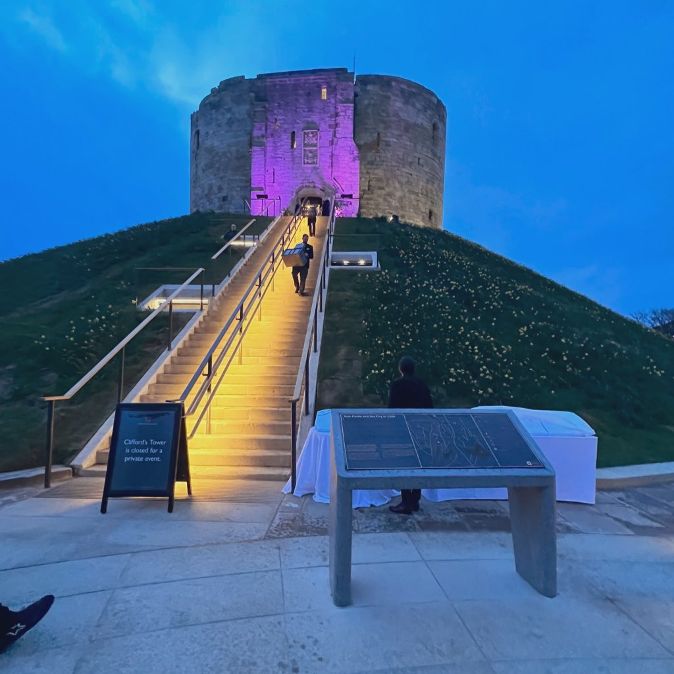
This talk, by Alastair Somerville of Acuity Design, used examples from projects for Imperial War Museum, English Heritage, National Trust, and Transport for Manchester to show how a sequence of wayfinding materials that pay attention to the active interaction of an individual’s capacities in relation to the organisation’s capabilities can help people to find their way independently and confidently.
Alastair works with clients in both public transport and cultural sites on accessible wayfinding through tactile maps, signs, and other media. In the last five years, the studio has switched away from established ideas of large maps on site to creating many more maps that are available before and during arrival. This is based around both ideas of cognitive maps and pre-learning, and research showing that people with physical or cognitive impairments do not make journeys to new places because of their anxiety about accessibility. The materials Acuity Design now create are based around the idea of using maps and wayfinding to build positive anticipation, reduce negative anxiety and to enable personal autonomy in choosing to visit new places. Not simply showing a place is accessible, but building confidence that a place is somewhere a person wants to go and can go. This is the idea of ‘whenfinding’: using service design ideas of user journey mapping and touchpoints to plan for the whole individual wayfinding experience, from home to intended destination and back again.
About our speaker
Alastair Somerville is a sensory design consultant. He provides expert advice on cognition and person-centered design to companies and public organisations who provide both physical and digital products or services. He facilitates workshops on sensory and emotional design as well as accessible information architecture and wayfinding for corporations, cultural attractions and conferences across the world. Clients include: Google, Natural History Museum, Transport for Manchester, English Heritage, National Trust and
museums across the United States and European Union.
